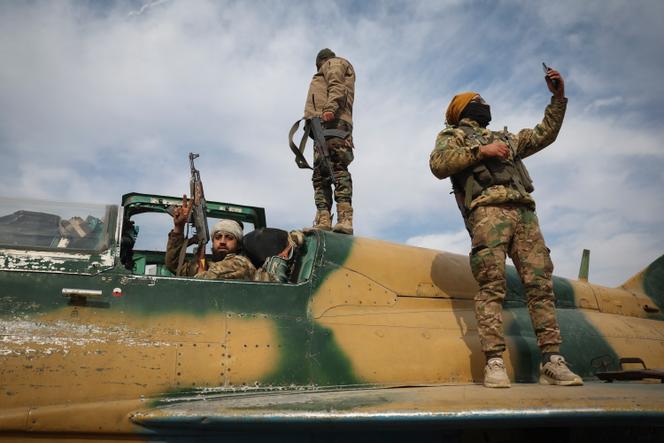


Vladimir Putin seems unwilling to save the regime of his counterpart Bashar al-Assad, and the latter's army seems unable to halt the offensive of the Islamist rebels of Hayat Tahrir al-Sham (HTS). A week after seizing Aleppo, the country's second-largest city, they have already conquered Hama, are closing in on Homs, and even on the capital, Damascus.
Long dominant in Syrian skies, after the armed opposition to the Al-Assad regime was deprived of anti-aircraft systems, the Russian air force now appears powerless to halt HTS's rapid advance along the M5 road toward Homs, the country's third-largest city. Russian military blogger Colonel Cassad notes with spite on his Telegram channel that "the strikes on the Rastan bridge [on the morning of December 6] did not achieve the desired result: it was only damaged," as confirmed by a video posted on X.
The fall of Homs would enable the rebels to cut the M1 road linking the capital Damascus to the coastal region, where the Tartus and Khmeimim bases are located. The M1 is already within range of rebel guns, while the two main Russian bases are 70 kilometers and 35 kilometers respectively from HTS forces. On December 4, the six ships of the Russian fleet based in Tartus (three frigates, two auxiliary vessels and a submarine) conveniently set sail for "planned exercises," according to the Russian Ministry of Defense.
This sudden reversal of fortunes is a reminder that it was Russia's surprise military intervention in Syria in 2015 that enabled the Assad regime, then in a very bad position, to turn things around. The intervention had put Russia back at the center of the Middle Eastern game, thanks to the disengagement of the Western powers. Moscow had regained a foothold in the region with two major bases: A naval base at Tartus, opening onto the Mediterranean, and an air base at Khmeimim, close to the Alawite stronghold of Latakia. Ten other, more modest Russian bases were set up across the country, including Palmyra and Deir ez-Zur.
In recent days, Russian bombers have carried out dozens of strikes on urban centers conquered by HTS. Observers speak of "indiscriminate" strikes, noting that the Russian air force does not have effective ground intelligence to accurately hit concentrations of highly mobile HTS fighters. On the other hand, in recent days, the HTC fighters are said to have acquired stocks of portable anti-aircraft missiles that force Russian bombers to operate at high altitude, to the detriment of precision and intelligence. The portable missiles further hamper Russian helicopter gunships, seen in videos posted on social media firing salvos of unguided rockets at the rebels. A tactic generally considered to be ineffective in maneuver combat, when the adversary is highly mobile.
You have 40.16% of this article left to read. The rest is for subscribers only.
